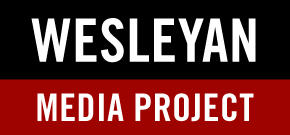Photo: anyaberkut/iStock
(MIDDLETOWN, CT) December 9, 2021 – Given the rapid recent growth in spending on political advertising online (at least 25 percent of 2020 presidential spending) and the challenges that the current ad libraries pose for research and for accountability in elections, the Wesleyan Media Project (WMP) proposes a new universal transparency standard for platforms that sell digital ads and meet certain eligibility thresholds.
A new WMP paper, jointly authored with researchers at NYU and Mozilla and released today, outlines a universal transparency standard that would require these platforms to report advertising by sponsor to a centralized repository maintained by a government agency, resulting in a standardized, public database that would facilitate comparisons across platforms. The new standard is also committed to addressing the privacy concerns raised by many about new regulations.
“We’ve spent a tremendous amount of time working with the platform library data, and while we appreciate the data that have been made available, they aren’t yet sufficient for open and reproducible research,” said Erika Franklin Fowler, co-director of the Wesleyan Media Project.
The WMP’s work with current political ad libraries maintained by Google, Facebook, and Snapchat makes clear certain limitations in the way data are currently provided (when they are made public; it is important to acknowledge that many platforms make no ad data available). For example,
- the current systems maintained by the platforms make replication impossible (see our Delta Lab’s Facebook and Google discrepancy reports),
- digital platforms can remove public access or individual access to their ad libraries at any time or make citizens register or create accounts in order to have access to the information and
- there is no uniform standard on what is included or excluded in the respective libraries either in universe or in variables.
“One of the challenges with the lack of uniformity in the current ad libraries is that researchers have to spend a lot of time and resources gathering, processing, and linking up various datasets,” said Travis Ridout, co-director of the Wesleyan Media Project. “By setting a standard for reporting, we would eliminate a lot of problems that currently fall to individual researchers to solve.”
The proposed standard would increase comparability, reduce the need for the platforms to design and maintain their own user interfaces, and allow for more comprehensive, transparent and replicable analyses of political ads. The paper also compares our proposal against current legislation under consideration in the U.S. Congress.
“This standard does not fix everything, but as some of the heaviest users of the data, we feel obligated to outline what we think would meaningfully improve the information in the public sphere that allows us to report on the content and spending of political advertising” said Michael Franz, co-director of the Wesleyan Media Project.
About the Project
The Wesleyan Media Project (WMP) provides real-time tracking and analysis of political advertising in an effort to increase transparency in elections. Housed in Wesleyan’s Quantitative Analysis Center (QAC) – part of the Allbritton Center for the Study of Public Life – the Wesleyan Media Project is the successor to the Wisconsin Advertising Project, which disbanded in 2009. It is directed by Erika Franklin Fowler, professor of government at Wesleyan University, Michael M. Franz, professor of government at Bowdoin College and Travis N. Ridout, professor of political science at Washington State University. WMP personnel include Laura Baum (Associate Director), Pavel Oleinikov (Associate Director, QAC), Markus Neumann (Post-Doctoral Fellow), and Jielu Yao (Post-Doctoral Fellow).The Wesleyan Media Project’s digital advertising tracking is supported by the contributions of students in Delta Lab, an interdisciplinary research collaborative focusing on computationally-driven and innovative analyses and visualizations of media messaging.
The Wesleyan Media Project’s 2020 election tracking efforts were supported by Wesleyan University, the John S. and James L. Knight Foundation, and the Democracy Fund.
Follow us on Twitter @wesmediaproject. To be added to our email update list, click here.
The second edition of Political Advertising in the United States — a comprehensive overview of campaign advertising in elections written by the WMP co-directors — is now available. Click here for more details.
For press inquiries contact Steven Scarpa, media@wesleyan.edu, (860) 685-3813




